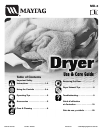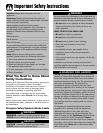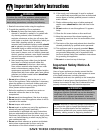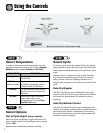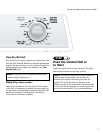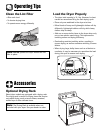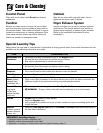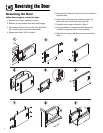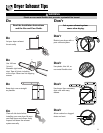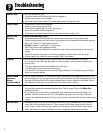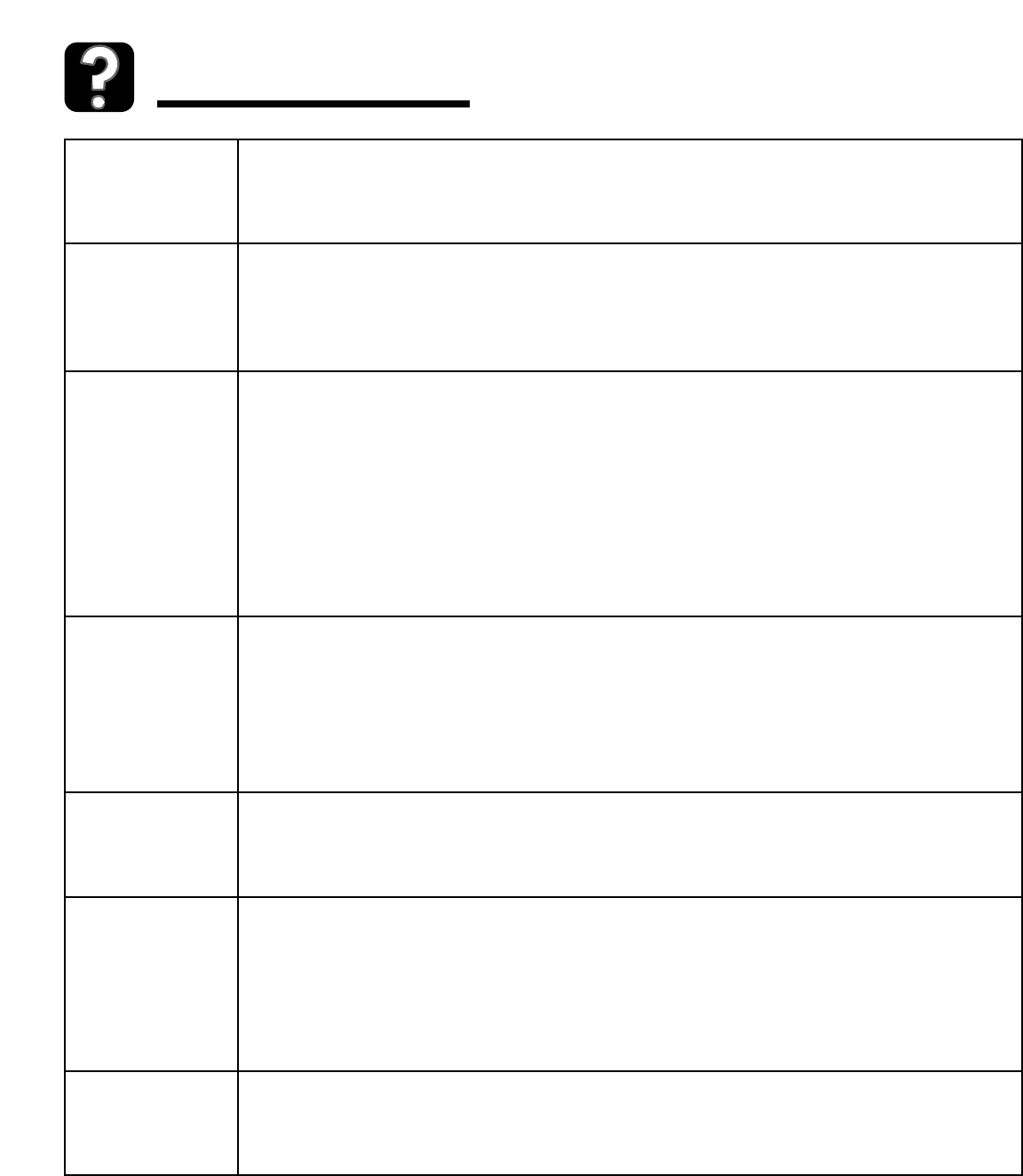
9
Troubleshooting
• Be sure the door is shut.
• Check to make sure the electrical cord is plugged in.
• Check fuse or reset circuit breaker.
• Push the control dial
in again if the door was opened during the cycle.
• Check fuse or reset circuit breaker.
• Select a heat setting, not Air Fluff.
• Check that the gas supply is on for gas dryers.
• Clean the lint filter and exhaust duct.
• Dryer timer may have moved into the cool-down portion of the cycle.
Check all of the above, plus . . .
• Check the exhaust hood outside the house, make sure it opens and closes freely.
• Check exhaust system for lint buildup. Ducting should be inspected and cleaned annually.
• Use rigid 100mm (4”) metal exhaust duct.
•
Do not overload. 1 wash load = 1 dryer load.
• Sort heavy items from lightweight items.
• Large, bulky items like blankets or comforters may require repositioning to ensure even
drying.
• Check the washer to be sure it is draining properly to extract water from the load.
• Clothes load is too small to tumble properly. Add a few towels.
• Check the load for objects such as coins, nails, etc. Remove promptly from dryer.
• It is normal to hear the dryer gas valve or heating element cycle on and off during the
drying cycle.
• The dryer should be level and installed on a solid floor.
• A clicking noise may be the timer advancing.
• It is normal for the dryer to hum due to the high velocity of air moving through the dryer
drum and exhaust system.
• This is normal operation for an Auto Dry cycle, especially at the beginning of cycle. Once
the load begins to dry, the control knob will start to advance. The rate of advancement will
be slow at the beginning of the cycle because there is more moisture in the load. As the
load becomes more dry, the control knob will advance more quickly.
• Seams, pockets and other similar heavy areas may not be completely dry when the rest of
the load has reached the selected dryness level. This is normal. Select the
More Dry
setting if desired.
• If one heavy item is dried with a lightweight load, such as one towel with sheets, it is
possible that the heavy item will not be completely dry when the rest of the load has
reached the selected dryness level. Sort heavy items from lightweight items for best drying
results.
• Household odors such as from painting, varnishing, strong cleaners, etc. may enter the
dryer with the surrounding room air. This is normal as the dryer draws the air from the
room, heats it, pulls it through the tumbler and exhausts it to the outside. When these
odors are present in the air, ventilate the room completely
before using the dryer.
Doesn’t Run
Doesn’t Heat
Doesn’t Dry
Properly
Is Noisy
Control Knob
Advances
Slowly
(select models)
Dries Unevenly
Has an Odor



